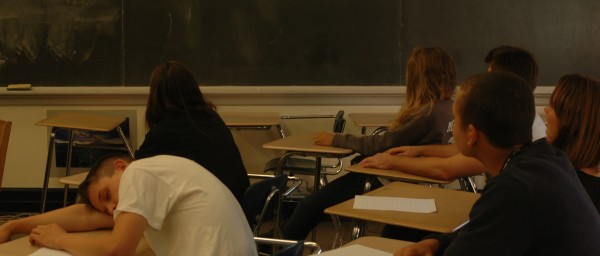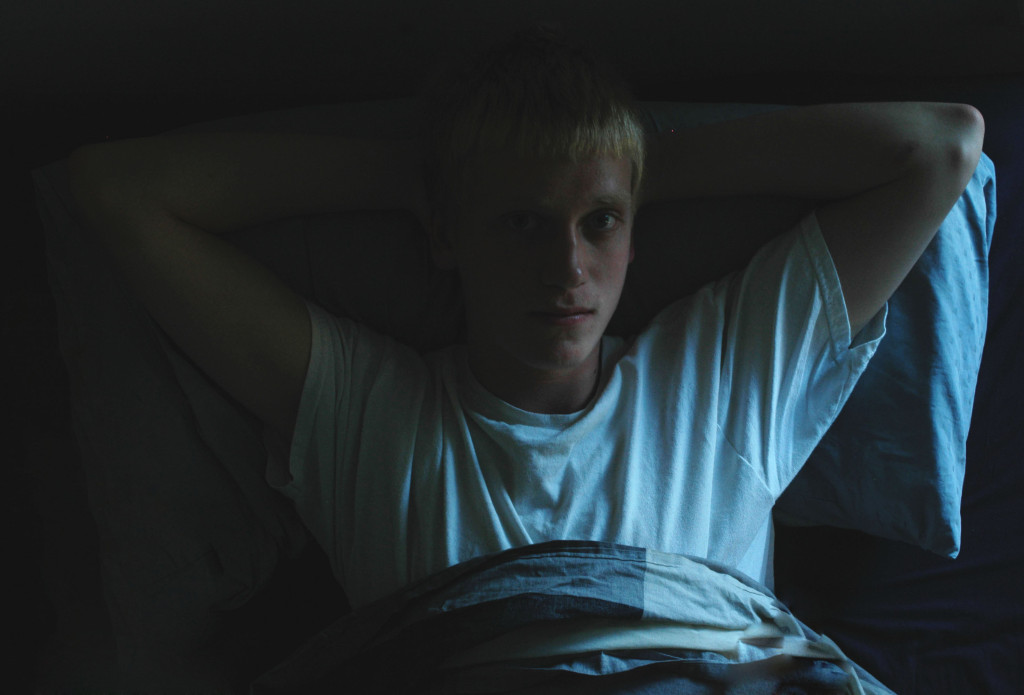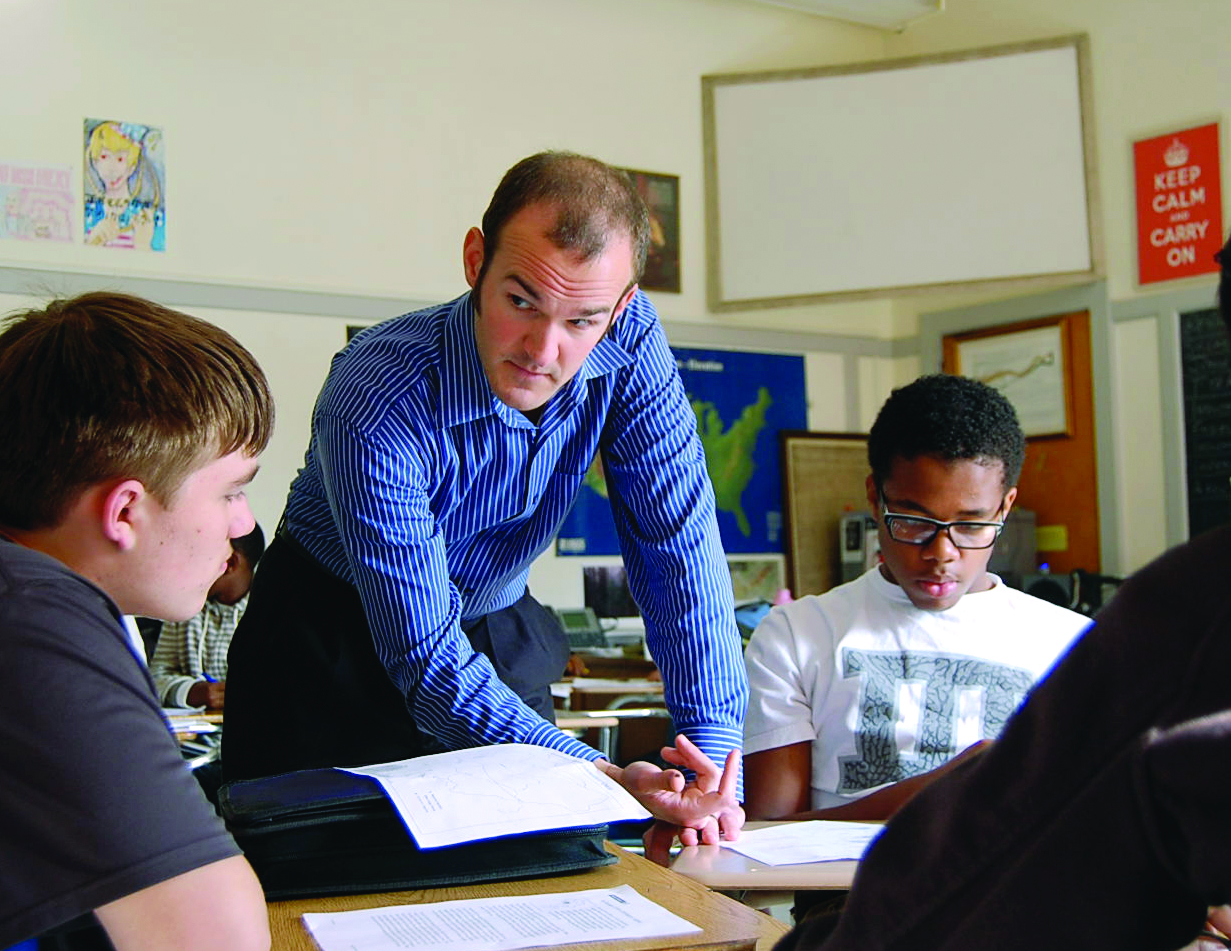
SWOOSH. Duncan Gannicott plummets at full speed down the middle of Sandy Boulevard on his long board, carving his way down the tarmac.
“It’s really peaceful…going on my board; the wind, the lights, no noise,” he says. The sky is pitch-black, but Gannicott doesn’t have to worry about running into any cars.
That’s because it’s 2 a.m., and the Grant High School junior hasn’t slept in three days.
“My brain is moving at a thousand miles an hour at all times,” says Gannicott, an insomniac who hasn’t had a good nights sleep since he was in third grade.
While the rest of Grant High School spends their midnight hours glued to their screens, Gannicott opts for calming neighborhood outings on his long board.
“It’s peaceful, it’s really peaceful,” he says. “I mean, it gets lonely after a while, but it’s a really good way to unwind for me…blows off a lot of steam.”
With heavy academic course-loads, developing brains and growing bodies, teens need their sleep. But take a look around any first period class, and you’re likely to find an assortment of heads-on-the-desk, droopy-eyed, Starbucks-holding students complaining about how late they stayed up finishing an essay or studying for a math test.
At Grant and around the nation, studies are finding that many teens aren’t getting their ZZZs. The distractions that keep kids up are numerous. With constant connectivity to social media and the Internet, sleep often takes a backseat. When those bags beneath your eyes appear, what are the consequences?
Sleeping for Gannicott has been a problem since he was in third grade. He has chronic insomnia —a sleep disorder that inhibits his ability to fall asleep and stay asleep. After trying countless methods to remedy the problem, from sleeping pills to playing audio of calming ocean noises, nothing helped Gannicott fall asleep.
“I’ve slept in all sorts of crazy positions trying to figure out something that works for me,” he says.
At the age of 15, he took part in an overnight sleep study—where doctors monitored his breathing and brain activity. Nothing abnormal showed up. His brain, they told him, simply wasn’t producing melatonin—a natural hormone that induces sleep and causes your body to relax. “You just didn’t fall asleep,” a sleep technician said to him at the time.
With more and more teens submerged in the never-ending world of technology, rates of insomnia are on the rise. Many high school students admit to staying up late on their computers or phones. Others watch TV or listening to music.
Miriam Kohn, a senior at Grant, says she finds using her iPod or computer before bed impedes her sleep. But since the majority of her homework requires Internet or typing, Kohn doesn’t have a choice.
Elizabeth McBeth—a sleep technician at the Portland Clinic Sleep Center—says using electronics before bed makes it hard for your brain to decelerate. “The lights, texting, or thinking about a game you were just doing causes a lot of…processing in your head, so when you go to lie down, it’s not able to shut off.”
The Centers for Disease Control and the National Sleep Foundation both recommend teens get at least eight to nine hours of sleep per night. Based on an informal Magazine survey, seven in 10 Grant students say that on average they get fewer than eight hours per night, and that they don’t feel like they get enough sleep.
McBeth notes there are significant academic consequences that come with insufficient rest. She says not getting enough sleep slows your brain’s ability to think quickly, learn, and function at its highest level.
So stay up late Tweeting or checking Facebook? You might as well take 10 points off that math test your taking the next day. Think you can pay attention to a history lecture and remember what the teacher said? Forget it.
The consequences aren’t just academic. According to the National Sleep Foundation, if sleep is cut short, “the body doesn’t have time to complete all the phases needed for muscle repair, memory consolidation, and growth regulating hormones.” Insufficient sleep is also associated with multiple chronic diseases like diabetes, cardiovascular disease, obesity, and depression.
Grant math teacher Pat Herrington says the effects of sleepless nights are apparent in her morning pre-calculus classes. She says her second period class consistently has better grades than her first period class. In her estimation, it’s not because the kids are smarter, but because they are more awake, alert, and ready to learn.
Freshman English teacher Dylan Leeman agrees that little sleep, “can be a huge hindrance,” to students’ ability to learn. “You see it,” he says, “in the high end kids who do homework late at night,” and also in the teenage boys who are prone to video gaming into the early hours of the morning.
 Gannicott’s lack of sleep is not the by-product of un-healthy sleep habits or too much schoolwork. Around the time he reached third grade, he had a harder time falling asleep at night. Not wanting to worry his parents, he kept it from them. “Even though I was pretty much a zombie for a while, [my parents] didn’t really notice,” he says. “Eventually I brought it up because I hadn’t slept for four days—my record back then. I was worried because it was my first time hallucinating really badly.”
Gannicott’s lack of sleep is not the by-product of un-healthy sleep habits or too much schoolwork. Around the time he reached third grade, he had a harder time falling asleep at night. Not wanting to worry his parents, he kept it from them. “Even though I was pretty much a zombie for a while, [my parents] didn’t really notice,” he says. “Eventually I brought it up because I hadn’t slept for four days—my record back then. I was worried because it was my first time hallucinating really badly.”
Now, Gannicott says the longest he has gone without sleeping is six days. “Stuff gets really weird after you’re awake for that long,” he says.
His hallucinations range from terrifying—with people’s faces looking disfigured—to minor tweaks in reality, like all the drawers in his kitchen appearing to have three handles instead of the usual two.
If he really tries, Gannicott says he can sometimes get two or three hours of sleep in a night, but never feels fully rested. In school, he gets good grades, but is often not fully conscious of what’s going on in class.
His teachers rarely notice. “I mean,” he shrugs, “half the kids in class are zoned out.”
One of those kids is Max Bley-Male, a senior at Grant. Bley-Male would love to get the recommended nine hours of sleep a night, but as a competitive swimmer and Ivy-League hopeful, that’s not in the cards. So far his senior year has been spent visiting colleges he hopes to swim for, and keeping up on the school he misses. “Monday night I basically stayed up until one in the morning doing makeup work and work to get ahead,” he admits.
A Scholastic All-American swimmer, Bley-Male has been getting up at 4:30 a.m. since his freshman year every other day to get to swim practice by 5:15 a.m. He returns to the pool later in the day for an afternoon practice as well.
Occasionally, Bley-Male will prioritize sleep over homework so that he can go to bed around 9:30, but the results are the same. “When you wake up at 4:30 it doesn’t matter how early you went to bed,” he says, “because the next day right after lunch you’ll just be asleep on the desk.”
Shortcutting assignments in exchange for sleep is not always worth it for Bley-Male. “It ends up biting me in the ass because then I get bad grades,” something that wouldn’t look good for this Brown University-hopeful.
Traditionally, teens who can’t get enough sleep during the week make up for it by sleeping in late on weekends, a “catching up” method. McBeth says this doesn’t work. “That would be like starting an exercise routine and you don’t work out Monday through Friday, but you work out for four hours Saturday and Sunday,” she says.
Her advice? Get a consistent number of hours of sleep each night, and turn off the electronics early.
Gannicott doesn’t have that luxury. He takes what little sleep he can get. He says when he was younger he would spend his nights, “staring at the ceiling and thinking. I did a lot of thinking. Mostly is has just made me really philosophical.”
Now that he’s older, Gannicott spends his eight extra hours a night reading entire books, walking around his neighborhood, long boarding, or sometimes climbing schools and commercial buildings. “I would just be walking around lost in thought and look at something and be like: ‘Yeah, I think I could climb that.’ I’ve got nothing else to do, and I kind of like the night views.”
Statistically speaking, by the end of your life you will have spent a third of all your time asleep. Compared to the average melatonin-producing 16 year-old, Gannicott has spent roughly two more years awake.
His own experiences have sparked his interest in psychology and how human minds work. Whatever career he ends up choosing, he will certainly have a lot of time to pursue it. “Once I find something that really interests me, if I really applied myself and used that extra time, I could probably do something really cool,” he says.
For now, Gannicott often uses his extra hours to do homework, and jokes that he never has the excuse that he didn’t have enough time to get it done. Instead, he says “the closest I can get to that is ‘I didn’t have the brainpower to do my homework.’”
His freshman year, Gannicott told some of his teachers and friends about his insomnia, but now regrets it. “It was just this constant outpouring of pity and sympathy and I wasn’t really a big fan of that. I don’t want people defining me [by my insomnia]. I want people to define me by my personality and how I act towards them…not by what ailments I may have.”
After melatonin supplements failed, Gannicott stopped looking for solutions to his insomnia, “if what I’m missing doesn’t work, then nothing will.”



